Sohaib Athar offers an overview of Dr Montek Singh Ahluwalia’s talk at the LSE last Thursday.
As part of Growth Week 2014 Dr Montek Singh Ahluwalia, former Deputy Chairman of the Planning Commission of the Republic of India, will talk on‘Growth, Policy and Institutions: lessons from the Indian experience’. This session will be chaired by Professor Francesco Caselli (Norman Sosnow Professor of Economics, LSE), with Lord Nicholas Stern (IG Patel Professor of Economics and Government, LSE; Chair, Asia Research Centre; Chair, Centre for Climate Change Economics and Policy; Director, India Observatory) acting as a discussant.
Summary
Mr. Ahluwalia’s talk recalled India’s experience with economic growth, and focused on the policies and institutional reforms it can undertake in the future to achieve high rates of sustainable and inclusive growth. He gave a historical perspective of India’s high economic growth over the past few decades, and provided some reasons for growth slowing down since 2011. According to him, inflation rose substantially since 2011, which led to a decline in household financial savings. This played a part in reducing total investment, which finally reduced the rate of economic growth.
After giving this historical perspective, Mr. Ahluwalia highlighted a reform agenda for the new Indian government that can be pursued in the short as well as medium term. He felt that it is now critical to immediately focus on removing short-term constraints to economic growth. Once these are removed, the agenda can then shift to medium term activities that span the term of the new government. These medium term actions will help India achieve high rates of economic growth.
In the short term, the Government should do the following actions: one, correct macroeconomic deterioration; second, expedite environmental and forest clearances for stalled infrastructure projects; third, resolve problems hindering the development of large infrastructure projects in the public-private partnership mode; fourth, begin removing the significant financial constraints facing infrastructure development; fifth, expedite government decision-making; and finally, expedite pending decisions on certain taxation issues.
Mr. Ahluwalia felt that the BJP’s large majority in the legislature will enable it to push reforms faster.
Over the medium term, the Government should focus on the following actions:
- reducing the fiscal deficit, while increasing expenditures on health, education and infrastructure. The Government should reduce expenditure on subsidies by reducing leakages through linking disbursements to unique biometric IDs of beneficiary households. The Government should implement the Goods and Services Tax which will lead to more revenue and more efficiency.
- continuing the reforms in the financial sector.
- developing skills of the workforce, by linking to needs of the labour market
- agriculture, especially placing an emphasis on research, modernizing agriculture marketing and allowing leasing of land.
- improving the ease of doing business
- encouraging foreign investment
- harnessing urbanization for economic growth
- resolving problems of energy management
- water management
- reforming labour laws
- reducing the influence of crony capitalism.
The discussant, Lord Nicholas Stern, said that one way India can reduce greenhouse gas emissions in all its cities is by promoting good urban design, which includes promoting and investing in mass transit and transit-based development instead of promoting urban sprawl.
This post originally appeared on the IGC website. It is reposted with permission.
About the Author
Sohaib Athar is a Country Economist at IGC Pakistan


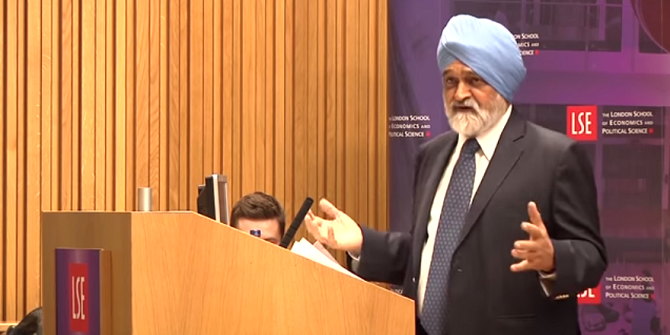

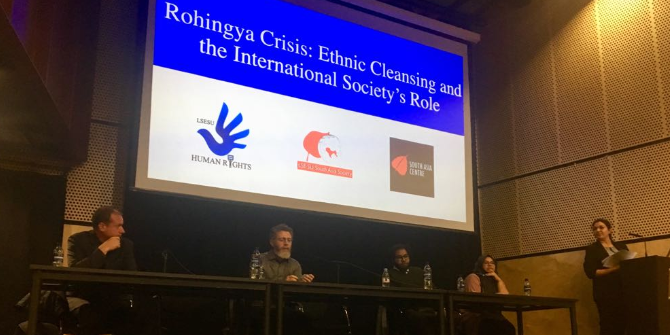
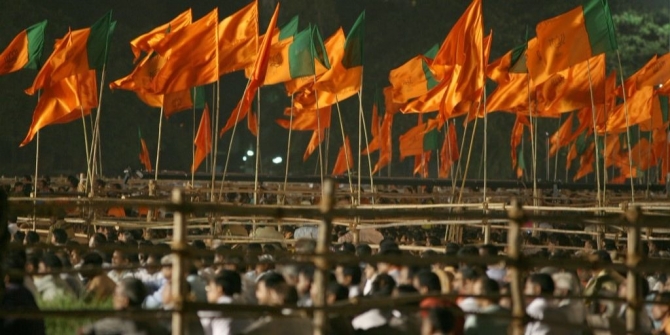
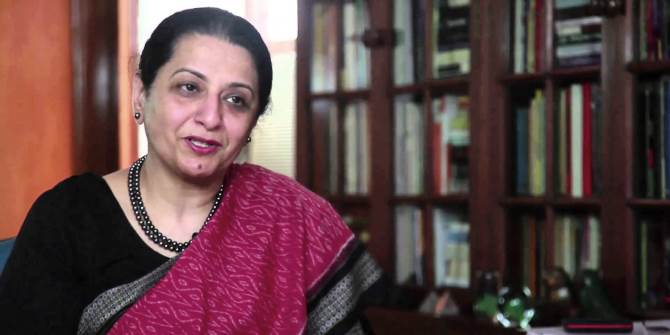
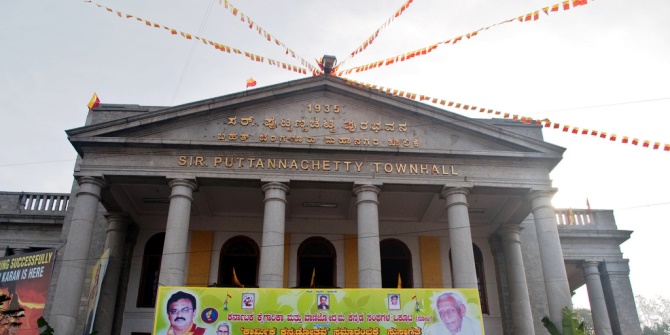

“… some reasons for growth slowing down since 2011 …” followed by alleged falling savings rates. This seems not to be true, rather the opposite. The Indians (and the Chinese) seem to buy up gold privately as if there was no tomorrow. Of course they don’t trust banks and central banks to look after their money any more. And as these measure their fiat aggregates and not “real” wealth they draw some precariously incorrect conclusions, just as the speaker above. the whole shopping list calls for reducing the deficit while spending more. I’d call that the squaring of the circle. Maybe he’ll advise Argentina next?!
A large number of the initiatives mentioned are not under the direct control of the Government of India, most of the critical areas require a significant state level interventions
Over the years states have moved more towards left centric approach with very little reforms.
The biggest challenge India faces is unaccountability of senior bureaucracy and incapability of lower bureaucracy which is very interested in status quo. Even if strong reforms identified, designing and implementation of the same has to be championed at local level. This is also part from the fact that today longer attracts best talents which it used to 20-30 years back. There has been practical hiring freeze in most of the govt departments, no fresh hiring but the existing resource’s capacity has not been increased
No reforms are going to be successful if these challenges are not addressed